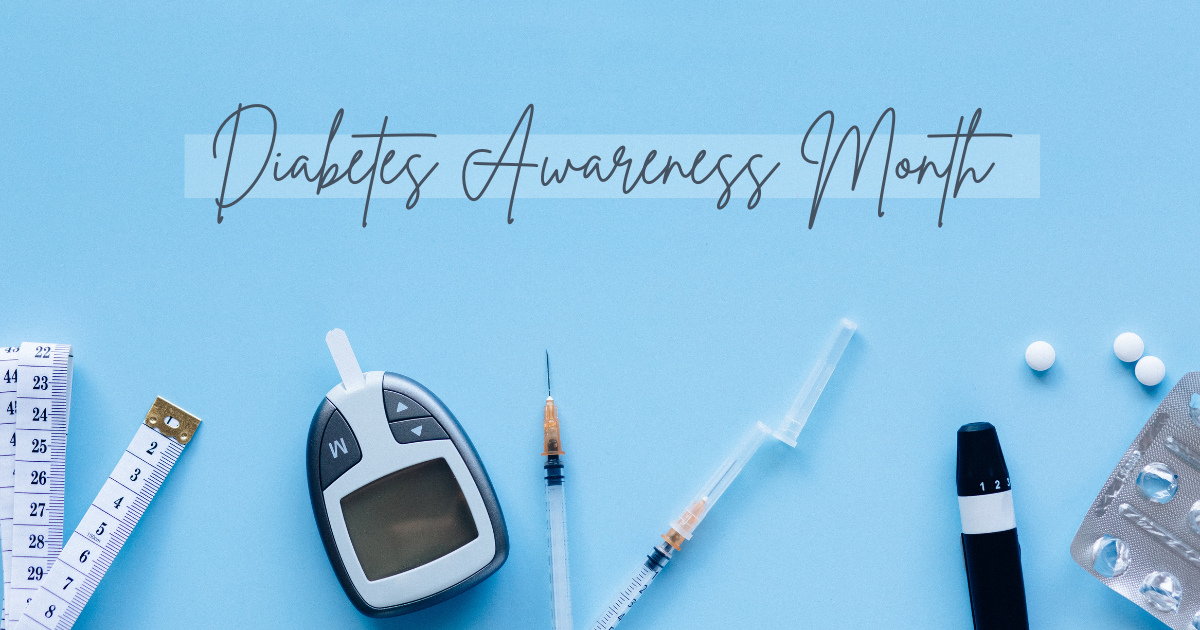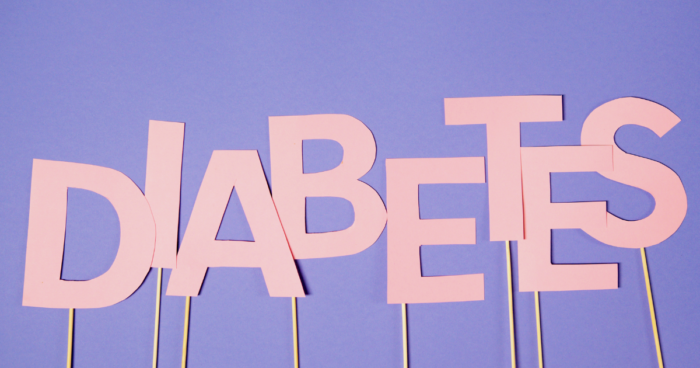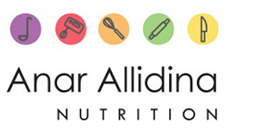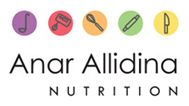
11 Nov The Importance of Diabetes Awareness Month with a Dietitian
Happy Diabetes Awareness Month! After reading this, I hope you have a better understanding of why being aware of insulin resistance and your own blood sugar levels can be helpful.
I’ve also included a 40-minute class about how to master balancing your blood sugars. In this video, I will be sharing four dietary tips you can start implementing right away.
If you are looking for additional help on your journey, stay tuned for more details about my blood sugar management program at the end.
Did you know that your blood sugar levels could be affecting your mood? Yes, that’s right! Head over to my latest article on the connection between mood and blood sugar spikes.
Why are education and awareness about diabetes so important?
Diabetes is a helath condition that has a substantial impact around the globe. It is characterized by the inability to make and/or use the hormone insulin properly. Insulin is a hormone inside your body that helps to regulate your blood glucose, or blood sugar, levels.
There are four types of diabetes: prediabetes, type 1 diabetes, type 2 diabetes, and gestational diabetes. The conditions can be caused by a variety of factors including lifestyle management, genetics, diet, weight, and overall health.
Type 1 diabetes differs from type 2 diabetes in that it is an autoimmune condition and is insulin deficient (inability to produce insulin). Prediabetes, gestational diabetes, and type 2 diabetes are due to insulin resistance (cells don’t respond to insulin).
Risk Factors for Prediabetes

Did you know that almost 6 million Canadians have prediabetes?
This number is likely to be even higher with the number of cases that go undiagnosed. Prediabetes is a health condition where your blood sugar levels are higher than normal.
Risk factors for prediabetes include:
- Genetics
- Having a family member with diabetes
- Your race and ethnicity
- Descending from a high-risk group: South Asian, African, Arab, Asian, Hispanic, Indigenous
- Being diagnosed with Polycystic Ovarian Syndrome (PCOS)
- Your current weight and lifestyle choices
- Diet, physical inactivity
- Having gestational diabetes or a high-birth-weight baby
- Age (over 45)
- Acute and chronic stress
Prediabetes can be sneaky because you may not feel any symptoms. However, it can be a concern because if left untreated, it may develop and lead to type 2 diabetes and further complications.
As I mentioned above, insulin resistance (IR) is when your cells become resistant to the hormone insulin. The pancreas keeps making more insulin to try to make cells respond. Eventually, the pancreas can’t keep up, and blood sugar keeps rising. It is one of the first signs that your endocrine system is not working properly.
Did you know that IR can begin up to 13 years before you get diagnosed with prediabetes?
If you fall into a high-risk category and have any risk factors for diabetes such as ethnicity or PCOS, you may see IR manifest in your life early on. While there may be certain risk factors that increase your risk of developing prediabetes, there are plenty of lifestyle changes that you can start implementing today to help.
Let’s Talk About A1C Levels
You may have heard the term “A1C level” when talking about diabetes and aren’t sure what the term means.
HbA1c is a robust measure of how our bodies process sugar from the food we eat, it sticks to a protein in the red blood cells called Hemoglobin (Hb). The combination of this protein and glucose (sugar) is called glycated hemoglobin.
This basically acts as a glucose record keeper. The HbA1c is the average of blood sugar levels over the past 3 months and provides insight into your overall metabolic health.
The life span of red blood cells in the human body is about 3 months so measuring glycated hemoglobin or HbA1c is a great snapshot to gauge how effective lifestyle and dietary changes have been. A higher concentration or percentage of sugar in your blood leads to inflammation and can damage blood vessels over time.
In Canada, any HbA1C level above 6% is diagnosed as prediabetes and 5.5-5.9% is considered high risk.
If you have prediabetes, type 2 diabetes, or are in the high-risk range please know that you can lower your A1c. Medication can help, but managing stress, boosting physical activity, improving sleep quality, and making sustainable diet changes make a huge impact on lowering your A1c.
The Importance of Early Lifestyle Interventions
The great news is- you can manage and even reverse prediabetes! I encourage you to start an early intervention of lifestyle and dietary strategies so you are able to stop it before it progresses. Think of prediabetes as a fork in the road, you have control over the outcome.
Current research supports the idea that lifestyle implications such as healthy eating, exercise, sleep, stress management, and more can reduce your risk of prediabetes. It can also delay the onset of type 2 diabetes by more than 50%. Early intervention is key.
Nutrition and Lifestyle Tips to Prevent IR and Prediabetes
Here are some examples of tangible actions you can take to prevent and reverse insulin resistance and prediabetes.
- Eat a healthy diet.
- Aim for balanced meals, make half your plate veggies, ¼ carb, and ¼ protein
- Increase the amount of fiber and whole grains in your diet.
- Address any nutrient deficiencies and eat a wide variety of foods.
- Focus on a healthy gut microbiome.
- Increase your amount of physical activity.
- Choose a movement that feels good to you.
- 150 minutes a week of exercise minimum is recommended- or 30 minutes/5 days a week.
- Options include weight training, running, cycling, yoga, and pilates.
- Manage your stress levels.
- Try meditation and deep breathing techniques.
- Address stressors in your life.
- Go for a walk and get fresh air when you feel stressed.
- Improve your quality of sleep and sleep hygiene.
- Aim for 7-8 hours of sleep per night.
- Turn off screens 1-2 hours before bed.
- Play a white noise machine or fan in the background.
- Implement a nighttime routine to feel you wind down.
- Stop smoking.
- Limit or avoid smoking cigarettes.
- Limit alcohol intake.
- Alcohol should be used in moderation.
- 1 drink a day/women and 2 drinks a day/men.
Can a dietitian help with diabetes?
You aren’t in this alone, a registered dietitian like myself can help you along your journey with prediabetes, insulin resistance, and type 2 diabetes so you can feel confident with your diet and lifestyle choices.
Master Blood Sugar Balance Class
Imagine knowing how to balance your blood sugars, no matter how busy life gets.
My passion is to help people just like you navigate your blood sugars and master your blood sugar balance. In my class, I share 4 dietary tips you can start implementing today to help with blood sugar balance.
I’d love to hear from you.
I hope after reading this article that you feel empowered to take your health into your own hands. It is not too late to start- there is no better time than now!
If you ever have any questions or just want to say hi, please don’t hesitate to reach out! I am here to help you. Head over to my contact page and let me know what I can do to best support you.
Looking for more diabetes-friendly content and recipes? Here are a few articles on my site you can check out next!





Sorry, the comment form is closed at this time.